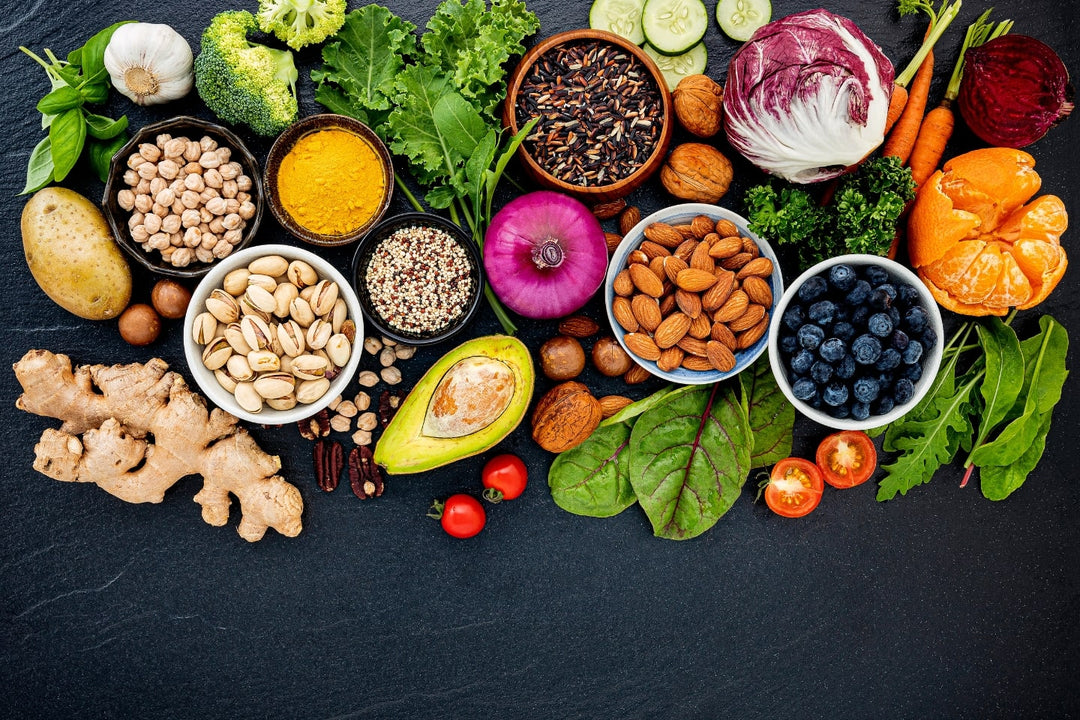Top 20 Superfoods to Supercharge Your Immune System Naturally

Boosting your immune system naturally starts with the food you eat. Superfoods are nutrient-dense ingredients packed with vitamins, minerals, antioxidants, and anti-inflammatory compounds that keep your body strong and resilient. Not only do these foods help fend off illness, but they also support overall health and well-being. Knowing where to source these superfoods can make a big difference in quality and nutritional value. In this blog, we explore the top 15 immune-boosting superfoods and offer tips on how to incorporate them into your meals, along with advice on the best places to find fresh, high-quality ingredients.
1. Garlic
Garlic’s tried and true immune-boosting properties come from allicin, which has antibacterial and antiviral effects. Quality is key when it comes to garlic, as fresh garlic tends to have higher allicin content than pre-processed or powdered versions, and a more robust taste and aroma.
Best Sources: Look for organic, locally grown garlic at farmers' markets or reputable organic grocery stores. Imported garlic can sometimes be treated with chemicals, so choose local sources when possible.
How to Use: Crush or chop raw garlic and add it to salad dressings, sauces, or spreads. Add to olive oil and enjoy with your favorite bread. Roasting garlic can give it a milder, sweeter flavor, perfect for adding to roasted veggies.
2. Ginger
Ginger is known for its anti-inflammatory and antioxidant properties, which help support the immune system. Fresh ginger root is more potent than powdered versions and is easily sourced.
Best Sources: Fresh ginger can be found in grocery stores, but for the best quality, look for organic ginger at health food stores or markets specializing in fresh produce. Organic ginger is free from pesticides, enhancing its health benefits.
How to Use: Slice fresh ginger and steep it in hot water for a soothing tea, or grate it into stir-fries, smoothies, and marinades.
3. Turmeric
Turmeric contains curcumin, a powerful anti-inflammatory compound that supports immune health. Fresh turmeric root offers higher curcumin levels compared to powdered turmeric and has a more robust flavor.
Best Sources: Organic turmeric root can be found at health food stores and international markets. When buying powdered turmeric, choose brands that offer organic, non-GMO varieties to avoid additives.
How to Use: Add fresh grated turmeric to curries, smoothies, or golden milk. Pair turmeric with black pepper to enhance curcumin absorption.
4. Citrus Fruits (Oranges, Lemons, and Grapefruits)
Citrus fruits are packed with vitamin C, which helps stimulate immune function. Fresh, organic citrus is best to avoid exposure to pesticides and to maximize nutrient content.
Best Sources: Farmers' markets, organic produce sections in grocery stores, or citrus farms (if available) are ideal places to find high-quality citrus fruits.
How to Use: Squeeze fresh lemon or orange juice over salads, mix into dressings, or enjoy grapefruit slices as a refreshing snack.
5. Dark Leafy Greens
Dark leafy greens like spinach, kale and swiss chard are loaded with immune-supporting vitamins like C and E, as well as beta-carotene and antioxidants. Eating these fresh is more nutrient-dense than frozen or canned varieties.
Best Sources: Look for organic, locally grown greens at farmers' markets or health food stores to avoid pesticides and increase nutrient density.
How to Use: Add leafy greens to smoothies, salads, or lightly sauté it as a side dish. Light cooking can increase nutrient absorption, especially iron content.
6. Nuts and Seeds
Nuts and Seeds like almonds, sunflower seeds, walnuts and pumpkin seeds among many others are rich in vitamin E, an antioxidant essential for immune function. Opting for raw, organic nuts and seeds is best to avoid added salts, sugars, or preservatives.
Best Sources: Organic varieties can be found in bulk sections at health food stores or specialty markets. Consider buying in bulk from reputable online organic stores for cost savings and quality.
How to Use: Snack on a handful, blend them into smoothies, or add to oatmeal and salads for added crunch.
7. Probiotic Foods
Naturally probiotic foods are packed with beneficial bacteria that promote gut health, which is essential for a strong immune system. These “good” bacteria help balance the microbiome, enhance nutrient absorption, and support the body’s natural defenses. Foods like yogurt, kefir, sauerkraut, kimchi, kombucha, and miso are excellent sources of probiotics that can be easily incorporated into your meals to boost immunity.
Best Sources: Look for organic, unsweetened yogurt and kefir with live, active cultures. For sauerkraut, kimchi, and miso, choose raw or unpasteurized versions to retain live probiotics. Kombucha should be raw and minimally processed for maximum benefits.
How to Use: Add yogurt or kefir to smoothies, use sauerkraut and kimchi as toppings for salads or bowls, stir miso into warm (not boiling) water for soup, and enjoy kombucha as a refreshing drink. Integrating these probiotic foods into your diet can naturally support immune health through improved gut function.
8. Green Tea
Green tea is loaded with antioxidants, particularly catechins, which support immune health by fighting off free radicals. The quality of green tea can vary significantly, so sourcing it well is essential.
Best Sources: Choose high-quality, organic loose-leaf green tea or matcha from specialty tea shops or online retailers. Japanese and Chinese teas are generally regarded for their high quality and flavor.
How to Use: Replace one of your daily coffee cups with green tea or matcha for a gentle caffeine boost with added antioxidants.
9. Broccoli
Broccoli (and other cruciferous veggies like brussels sprouts and cauliflower) are a powerhouse of vitamins and antioxidants that enhance immunity. Fresh, organic broccoli retains more nutrients than frozen or overly processed options.
Best Sources: Look for organic broccoli at grocery stores or farmers' markets. Organic options are free from pesticides and retain more nutrients.
How to Use: Steam or roast broccoli to retain its nutritional value, or add it to soups and salads for a nutrient boost.
10. Red Bell Peppers
Red bell peppers are high in vitamin C, an antioxidant that supports immune health. Fresh peppers are more nutrient-dense than frozen or jarred versions.
Best Sources: Buy organic bell peppers from grocery stores or farmers' markets to avoid pesticides. The brighter and firmer the pepper, the fresher it is.
How to Use: Slice raw bell peppers for snacking, add to salads, or roast with other vegetables for a sweet, smoky flavor.
11. Blueberries
Blueberries contain antioxidants, especially flavonoids, which are known to support immune health by reducing oxidative stress. Fresh, in-season blueberries are the most nutrient-dense.
Best Sources: Local farmers' markets or organic options from grocery stores provide the freshest blueberries. When not in season, frozen organic blueberries are a good alternative.
How to Use: Add blueberries to yogurt, oatmeal, or smoothies for a naturally sweet immune boost.
12. Sunflower Seeds
Sunflower seeds are high in vitamin E, selenium, and other essential minerals that support immune health. Choosing raw, unsalted seeds preserves their natural nutrients.
Best Sources: Organic, raw sunflower seeds are available at most health food stores or in bulk sections. Buying in bulk can also be more affordable.
How to Use: Sprinkle sunflower seeds on salads, blend into homemade trail mix, or add as a crunchy topping on soups.
13. Kiwi
Kiwi is packed with vitamins C, K, and E, and is excellent for immune health. Fresh kiwi offers a more potent source of nutrients than processed forms.
Best Sources: Buy organic kiwi from grocery stores or local markets, as they are usually pesticide-free and higher in nutrients.
How to Use: Slice kiwi as a refreshing snack, add it to smoothies, or pair with other fruits in a salad.
14. Salmon
Salmon is a rich source of vitamin D, omega-3 fatty acids, and protein—all critical for immune function. Wild-caught salmon has a better nutrient profile than farmed versions, as it’s free from added antibiotics and artificial coloring.
Best Sources: Look for wild-caught Alaskan salmon at reputable fish markets, grocery stores, or online retailers that source sustainably. Avoid farm-raised salmon, which may contain additives.
How to Use: Grill, bake, or poach salmon for a nutritious main dish, or add it to salads and grain bowls for a protein-packed meal.
15. Dark Chocolate
Dark chocolate (at least 70% cocoa) is rich in antioxidants like flavonoids, which help reduce inflammation and boost immunity by combating free radicals. It also contains minerals like iron, magnesium, and zinc, which play roles in immune health and stress reduction.
Best Sources: Choose organic, fair-trade dark chocolate with a cocoa content of 70% or higher for maximum health benefits. Avoid chocolates with added sugar or artificial ingredients.
How to Use: Enjoy a small piece of dark chocolate as a snack, melt it and drizzle over fruit, or add it to homemade trail mix for a delicious, immune-boosting treat.
16. Eggs
Eggs are a nutrient powerhouse, containing high-quality protein, vitamins D and B12, selenium, and choline—all of which are essential for immune function. Vitamin D, in particular, is known for its role in immune regulation, and choline supports cell structure and function.
Best Sources: Look for pasture-raised, organic eggs, as they tend to have higher nutrient content and better flavor than conventional eggs. Farmers' markets or reputable grocery stores often carry high-quality eggs.
How to Use: Enjoy eggs scrambled, poached, or hard-boiled for a quick protein boost. Add them to salads, breakfast bowls, or use them as a base for veggie-packed omelets.
17. Coconut Oil
Coconut oil contains medium-chain triglycerides (MCTs) and lauric acid, both of which have antimicrobial properties that support immune health. These compounds help combat harmful bacteria and viruses, making coconut oil a great addition to an immunity-boosting diet.
Best Sources: Look for organic, unrefined, and cold-pressed coconut oil to preserve its natural properties. Avoid refined versions, as they lack the beneficial compounds.
How to Use: Use coconut oil for cooking, blend it into smoothies, or add a small spoonful to coffee or tea. It can also be used as a dairy-free alternative in baking.
18.Lentils
Lentils are high in protein, fiber, iron, and folate, which support energy levels and immune health. They also contain polyphenols, antioxidants that help fight inflammation and support a balanced immune response.
Best Sources: Buy organic dried lentils from bulk sections or grocery stores for the freshest option. They’re inexpensive, easy to store, and don’t require preservatives like canned varieties.
How to Use: Cook lentils in soups, stews, or salads, or blend them into dips for a protein-packed, immune-supporting addition to meals.
19. Bone Broth
Bone broth is rich in collagen, amino acids, and minerals that support immune health and gut integrity. The amino acids in bone broth, such as glycine and glutamine, are known for their role in gut health, which in turn supports immune resilience.
Best Sources: Homemade bone broth is often the most nutrient-dense, but high-quality store-bought versions can also be a good option. Look for organic, grass-fed, or pasture-raised sources.
How to Use: Sip bone broth as a warming drink, use it as a base for soups and stews, or add it to grains during cooking for extra flavor and nutrition.
20. Sweet Potatoes
Sweet potatoes are rich in beta-carotene, which the body converts to vitamin A—a crucial nutrient for immune health and skin integrity, your body’s first line of defense. Their high fiber content also promotes gut health, which is key for immunity.
Best Sources: Choose organic sweet potatoes for better nutrient density and to avoid potential pesticide residues. Farmers' markets often carry fresh, seasonal varieties.
How to Use: Roast sweet potatoes as a side dish, mash them for a comforting base, or add cubed sweet potatoes to salads, soups, and stews for a boost of immune-supporting nutrients.
Integrating these superfoods into your daily meals doesn’t just enhance flavor; it also provides your body with essential nutrients to stay strong and healthy. Sourcing these ingredients from high-quality, organic, and sustainable options ensures you’re getting the maximum benefits.
For added immune support, consider the high-quality purpose-driven supplements from Bold Botanica, which offer potent, natural formulas to boost immunity. Options like Bold Mushroom Supreme 7, featuring organic fruiting body mushrooms, and Bold Elderberry Elixir or Bold Elderberry Plus capsules for enhanced immune defense, provide targeted support. Liquid herbals like Plant Sword and Plant Shield help protect against illness and speed up recovery, while Bold D3-K2-A and Bold Reishi Mushroom further enhance your immunity protocol. Start incorporating these superfoods and Bold Botanica supplements into your wellness routine for a stronger immune system and overall better health.
*These statements have not been evaluated by the Food and Drug Administration. This product is not intended to diagnose, treat, cure, or prevent any disease.

Jana Taylor is an Iowa native and seasoned copy writer, content creator and designer, specializing in marketing and graphic design since 2015. In her spare time, she volunteers in her community, loves to garden and is an avid travel enthusiast.






